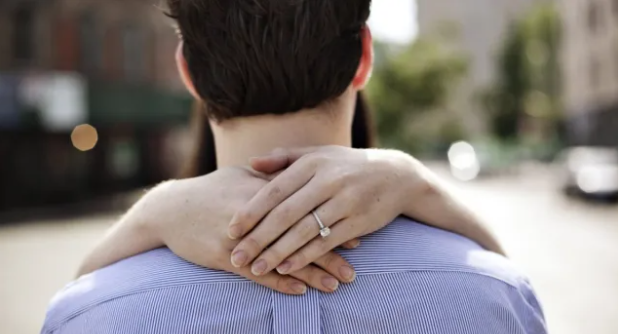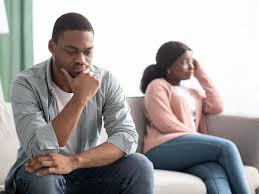
Getting engaged is an exciting milestone for any couple, a step in the relationship towards a lifelong partnership. But, there are many things to consider when weighing up the pros and cons of a marriage’s legally binding contract.
Before being swept up in the romance and excitement, reflecting on the relationship and the practicalities that lie ahead is essential. In fact, there are big points of contention that can cause a rift in a couple’s future happiness – things that divorce lawyers often see overlooked by their clients (but by this time it’s too late).
i speaks to divorce experts about the top questions every couple should ask themselves before saying “I do”.
Can we communicate effectively when things get tough?
Before deciding to get engaged, consider whether you can communicate clearly with your partner when things aren’t going well. Does one person lose their temper when making a point and say something they regret? Does another struggle to listen to being called out on something they’ve done wrong? Does another person struggle to air grievances in a timely way, letting resentment build up?
Jayne Hunt, family law partner at Howells Solicitors, says: “You both play a role in the relationship, and you need to tackle together what can be improved and what needs to be compromised to improve the relationship.”
She advises sitting down and seeing if there are any gaps in communication before you make the commitment official.
Is my partner just a ‘comfort blanket’ and am I just ‘going through the motions’?
A lot of people might stay in a stale relationship with their partner due to routine. They might feel pressure to instantly move onto the next important milestone, by getting married. However, that’s still not a valid reason to decide to get married, Hunt says.
It may be that your partner is “a comfort blanket” rather than someone you love as “a spouse” – in that case it may not be right to get into a marriage.
Closely think about what you both bring to the relationship, how much you support each other and if your connection is fulfilling and has a mutually strong basis.
Do both of us pull our weight equally in the home?
“Assuming you both already live together, how do you share household duties and responsibilities?” says Dr Manpreet Dhuffar-Pottiwal, a chartered psychologist with more than 15 years of experience working with couples in therapy.
For Dr Dhuffar-Pottiwal, establishing whether you’re both committed to contributing equally and fairly is key. That could be as simple as doing the washing up or being a supportive listener to your partner after a long day.
Once children enter the picture, she notices that a “dynamic shift” often occurs in the relationship. “This transition is a crucial point where traditional gender roles can often surface,” where the women bear the brunt of household responsibilities. Addressing these potential changes is crucial.
Do our life plans and values still truly align?
“A good question to ask yourself when considering getting engaged is, do our values align?” This is crucial, according to Victoria Walker, divorce lawyer and partner at top-100 law firm Moore Barlow.
“Misaligned values will always result in conflict and, most of the time, unfortunately, a relationship breakdown.”
But here’s how you can tackle it: “Values in your relationship can be figured out by asking yourself what you want? What do you need? What can you give? Do you know your love language, and if so, what is it?”
In terms of goals, it could be that one person initially wanted to start a family, the other realises that it’s not what they want anymore. Walker has seen how this causes many marriages to break down because it is often an intrinsic part of someone’s life plan. “If only they’d talked about it before they got engaged,” she adds.
Do we both have space to grow and develop as people in the relationship?
Over time, it’s natural that since you’ve both been together for some time, you have both evolved and changed as you’ve had new experiences, interests or career changes.
Dr Elena Touroni, consultant psychologist and co-founder of The Chelsea Psychology Clinic explains how this can be detrimental. “These shifts can challenge a relationship if there isn’t flexibility and mutual support for one another’s growth.”
She advises reflecting on whether both of you have space to grow even after getting married: “Relationships that thrive often allow room for individual exploration while maintaining a shared connection.”
Am I marrying someone I would want to divorce?
Before founding the affordable online divorce platform, SeparateSpace, Amanda Bell worked as a divorce lawyer at a leading law firm in London. “I’ve seen hundreds of people going through divorce,” she says. “I doubt any of them thought they’d end up there when they walked down the aisle.”
Bell often tells her clients, “don’t marry someone you wouldn’t want to divorce.” She adds: “Divorce is incredibly stressful and it doesn’t always bring out the best in people.
“Point-scoring, especially when it comes to children, is such a terrible way to deal with a divorce. It makes the process longer, more expensive and more stressful for everyone involved.”
So ask yourself how do you both manage stress and conflict? “If the answer is ‘not well’, think about ways to improve those skills. Having been married for almost 10 years myself, I suspect that these skills are just as important for a calm marriage as they are for a calm divorce!”
Have we been honest about our money situations?
For the vast majority of people, getting married isn’t just the most significant emotional decision of their life, it’s also the most significant legal contract they’ll ever enter into. Walker adds: “when a couple marries, they’re entering into a contract that gives them legal claims against each other for financial support if they get divorced.”
In Dr Touroni’s experience, money issues are a leading cause of divorce, often causing “issues around trust and resentment if partners feel unaligned in their goals.”
“Even if it’s not immediately obvious, it can lie beneath marital tension,” according to Dr Touroni. This is especially important if you have children and want to think about planning for their future.
Walker advises having an open conversation about money before you get married. These are some key questions: What do you each own, earn and owe? What are your views about money? What are your financial goals? If you have very different ideas about money, how will you manage that as a married couple?
Consider how each of you views financial security, savings, and spending. If there is a significant disparity, then that is important to reflect on before making a final decision.
Even think about your pensions since they are among the most valuable assets in a divorce, usually second only to the family home. Both spouses have a legal right to claim a share of it.
For example, one spouse may have more in their pensions than the other, which means you could lose a significant chunk. Your pensions, overall, should be a key consideration when you settle financially. You might decide to split it or trade it off against other assets.
There is other less obvious stuff to take into account too – like work benefits that you both get to enjoy because you’re both married. Walker adds: “That might be private medical insurance, death in service insurance or even air miles. What will this mean if you ever get divorced?”




